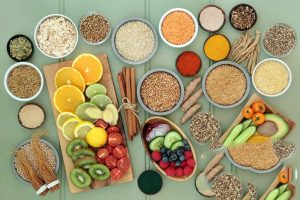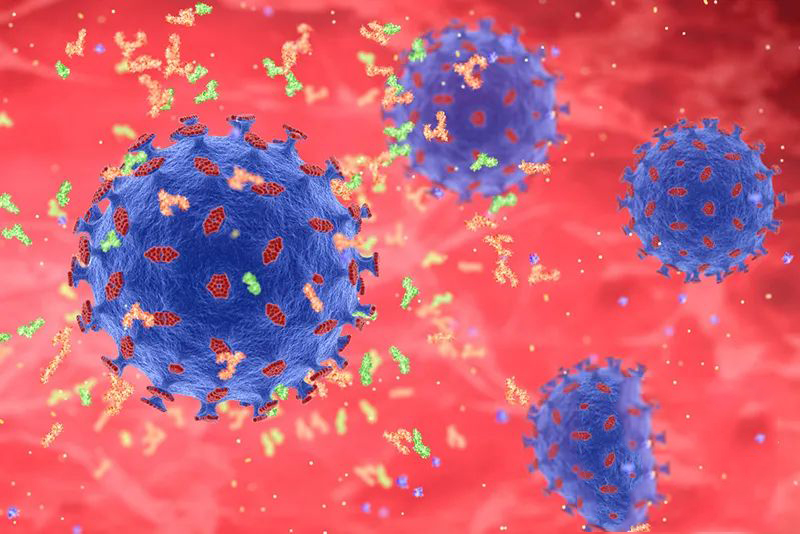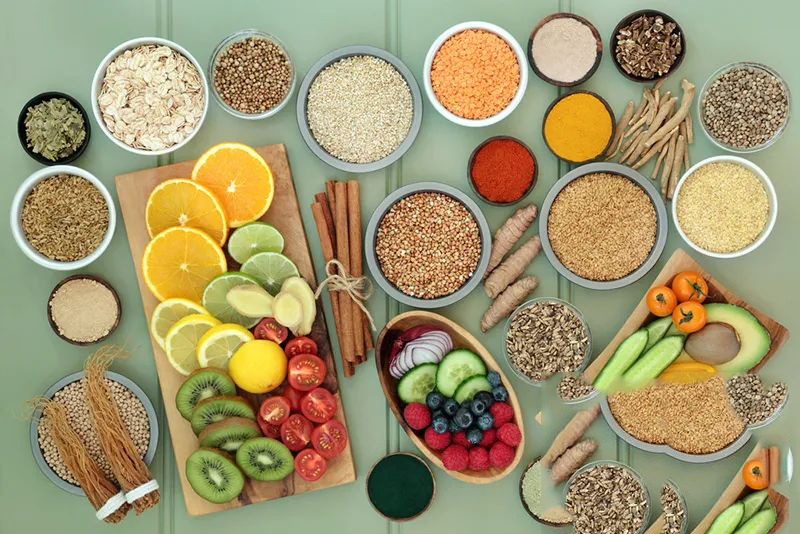
Many diseases that perplex the human body have a common feature – inflammation.
Recently, many food bloggers have begun to introduce a magical “anti-inflammatory diet”, claiming that it can enhance human immunity and reduce the risk of inflammation and infection.
There are not only “anti-inflammatory diets”, but also many foods that exacerbate inflammation. Are these eye-catching claims true?
What is the “inflammation” of “anti-inflammatory diet”?
The “inflammation” in the anti-inflammatory diet is not the same as the “inflammation” caused by viruses or bacteria.
Inflammation is a defensive response of the body’s autoimmune system to external stimuli. The immune system is similar to the guard protecting the body. When there is trauma or infection, the immune system will be activated, and the guard will respond quickly, devour invading viruses and bacteria or remove its own necrotic tissue, We call the inflammation caused by the invasion of bacteria or viruses acute inflammation, which comes and goes quickly.

The “inflammation” in the anti-inflammatory diet is chronic inflammation and various cytokines (interleukin, tumor necrosis factor TNF)- α And interferon γ- Inf, etc.) low level chronic inflammation produced in excess under stress or stress.
This inflammation can gradually develop within a few months or years and affect the immune system. At this time, the immune system is in a state of protracted war. It is always vigilant, but tired and irritable. It is easy to wipe the gun and get angry.

This repeated and sustained immune response often causes damage to the body. Studies have shown that chronic inflammation is associated with many chronic diseases, such as obesity, type 2 diabetes, cardiovascular disease, chronic respiratory diseases, psoriasis, rheumatoid arthritis, cancer and so on.
A 32 year report involving 210000 participants published by the Department of nutrition of the Harvard School of public health in 2020 shows that cardiovascular health is related to the inflammatory state in the body, and food can aggravate or improve the inflammatory state in the body.
What does “anti inflammatory diet” include?
Because different foods have different effects on inflammation, it is necessary to understand the anti-inflammatory or pro-inflammatory effects of different foods.
In general, red meat, over processed foods, high sugar and high oil foods are easy to cause more inflammation in the body.
Red meat contains a sialic acid molecule Neu5Gc that is not found in the human body. It will be recognized by the immune system as a foreign invader, causing inflammation. Animal experiments have proved that long-term consumption of red meat will increase the risk of cancer in mice
Over processed foods, such as white bread, sugary drinks, salad dressing, processed meat products, are generally high in sugar, salt and fat, and contain a large amount of trans fatty acids, which are easy to cause chronic inflammation.

Food ingredients that improve chronic inflammation include ω- Type 3 fatty acids, polyphenols, dietary fiber and natural antioxidants; These substances can exert anti-inflammatory effects by blocking signals, inhibiting the expression of prostate cyclooxygenase, reducing the level of inflammatory mediators and activating anti-inflammatory pathways.
They can also indirectly produce anti-inflammatory effects by adjusting intestinal flora and producing short chain fatty acids.
The biological activity of anti-inflammatory food has been verified in cell and mouse models, but there is no final conclusion in human research. A review was published in Critical Reviews in Food Science and Nutrition in 2021. The research team screened 88 foods with anti-inflammatory effects from 3581 studies, including cranberries, grapes, pomegranates, strawberries, whole wheat products, low-fat dairy products, yogurt, sesame seeds, flaxseeds, soybean food, turmeric, etc.
Based on the above research, the researchers divided foods that may have anti-inflammatory function into 6 categories:
Vegetables, especially cruciferous vegetables, such as kale, cabbage, broccoli, etc;
Fruits, especially berries, such as cranberries, strawberries, blueberries, grapes, etc;
Foods rich in dietary fiber, such as whole grains and beans;
Foods rich in polyphenols and flavonoids, such as green tea and soybeans;
Spices such as turmeric, ginger, cinnamon, nutmeg, sage and garlic;
Rich in ω- Foods with type 3 fatty acids, such as salmon, flaxseed oil, seaweed oil, grape seed oil, rapeseed oil, nuts, almonds, etc.
Is “anti-inflammatory” diet really effective?
Although the formulation of anti-inflammatory diet is very fashionable, it is not a specific dietary model. Mediterranean diet, DASH diet (a salt reducing diet for patients with hypertension), Okinawa diet, traditional Nordic diet and traditional Mexican diet all belong to anti-inflammatory diet.
These dietary patterns have the same characteristics: they are mainly plant-based foods, emphasizing eating more fruits and vegetables, whole grains and rich food ω- Type 3 fatty acid food, lean meat and spices.

Although the effect of diet on chronic inflammation has not been clearly quantified, some studies have shown positive effects. In 2016, the study found that after a year of anti inflammatory diet, the -CRP of type 2 diabetes decreased by 37%. Other diets based on fish, fruits and vegetables also inhibit inflammatory factors in patients with cardiovascular disease.
These results are exciting, but the human body is very complex. To improve immunity and reduce the occurrence of chronic inflammation, we should not superstitious about a legendary diet. In addition to a balanced diet, we’d better start from four aspects:
Exercise: 30 minutes of moderate exercise every day. Aerobic exercise has an amazing effect on improving immunity.

Decompression: long term stress and tension will increase the inflammatory level of the human body. Maintaining an optimistic attitude and good habits is conducive to controlling the level of inflammatory factors in the body.
Regular sleep also helps to slow down the accumulation of inflammatory factors.
Weight control: obesity can lead to hormonal and immune system disorders and aggravate the occurrence of chronic inflammation. Therefore, balance diet and exercise, and maintain appropriate weight and body mass index BMI.
Get rid of bad habits and have regular physical examination: smoking and drinking are recognized as bad living habits, which will increase the level of inflammatory cytokines in the blood; Carry out physical examination regularly to find the potential risks of the body in time; If you have inflammation such as gastritis, pharyngitis, hepatitis or autoimmune diseases such as lupus erythematosus and arthritis, you need a more detailed and scientific lifestyle and eating habits.
Allergy is also an important cause of chronic inflammation. Therefore, for allergic people, eliminating allergens is an important way to resist chronic inflammation.
Comments